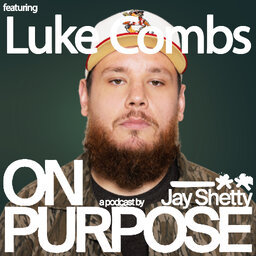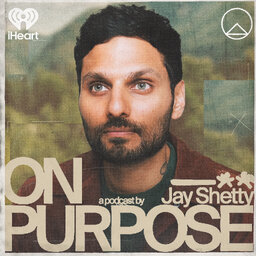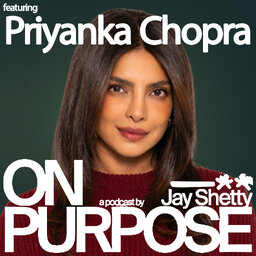Peter Attia ON: Scientific Ways to Slow Down Aging & How Your Emotional Health is Impacting your Physical Health
Have you ever found yourself thinking you're fine, only to discover that something is not right within your own body?
When is the right time to consciously invest in your health, and just how crucial is it to understand your family's health history?
There are so many questions and so many answers are needed for us to get a better understanding of our own health.
Today, I am excited to share the conversation I had with Peter Attia. Peter is the founder of Early Medical, a medical practice that applies the principles of Medicine 3.0 to patients with the goal of lengthening their lifespan and simultaneously improving their healthspan. He is the host of The Drive, one of the most popular podcasts covering the topics of health and medicine.
We explore the the detrimental effects of over-nourishment and three transformative approaches to address this imbalance and unlock the path to optimal well-being, the concept of glucose control and its profound impact on our overall health, and the consequences of consuming nutrient-deficient plants and unravel the complex interplay between regenerative agriculture and the quality of our soil.
In our pursuit of healing, we delve into the profound connection between childhood wounds and maladaptive behaviors in adulthood and identify the self-destructive behaviors that may be hindering your progress.
In this interview, you'll learn:
How to reverse aging
When is the best time to invest in your health
How to predict and prevent possible health risks
The benefits of changing your diet to address deficiencies in your body
The link between physical and mental health
How unaddressed big T traumas negatively affect our adult life
How to undo your self-destructive behaviors
Join us on this transformative journey as we uncover the wisdom and insights needed to cultivate a life of vitality, resilience, and healing.
With Love and Gratitude,
Jay Shetty
What We Discuss:
00:00 Intro
00:14 When you think you’re doing okay but you found out that something is wrong with your body
03:42 When is the right time to consciously start investing in your health?
08:50 How important is it to know your family’s health history?
11:26 What is the best methodology to get a complete family history?
14:16 How do people know how healthy they are? How can you predict health risks early?
19:02 Did you know that over-nourishment is bad for our body? There are three ways to address this
25:31 Do you need to take supplements? If so, what types of supplements are good for your body?
28:39 Are you familiar with glucose control? What is it and how can it help you?
35:50 What happens when you’re eating plants that are less nutrient-dense?
39:11 What is regenerative agriculture and complexity of agricultural soil?
45:09 Should people grow their own vegetable garden, and how can they maintain a good quality soil?
49:04 What is the link between your physical and mental health?
53:10 How do wounded children become adoptive children and become mal-adoptive in their adult life?
55:23 Why is it difficult for us to turn around and acknowledge the root of our pain and suffering?
01:04:54 What are your regrets in life? At the moment, what’s your greatest source of joy?
01:10:39 There are certain things in our life that are non-negotiable
01:17:36 Are there any proven ways to prevent and confront cancer?
01:23:53 Have you identified your self destructive behaviors?
01:28:09 Peter on Final Five
Episode Resources:
Peter Attia | Website
Peter Attia | YouTube
Peter Attia | Instagram
Peter Attia | Facebook
In 1 playlist(s)
On Purpose with Jay Shetty
My name is Jay Shetty, and my purpose is to make wisdom go viral. I’m fortunate to have fascinating …Social links
Follow podcast
Recent clips

LUKE COMBS: The Man Behind The Success (Marriage, Fatherhood & Life With OCD)
1:43:07

Don't Waste Your Life (Use THIS Daily Shift To Build a Life That ACTUALLY Feels Meaningful)
21:42

PRIYANKA CHOPRA JONAS: Fame, Motherhood, Love and the Moment That Changed Everything
1:49:49
 On Purpose with Jay Shetty
On Purpose with Jay Shetty